Neurology
EAN Conference 2025 Attendees
Have Your Say!
What do people involved in Neurology think about Psychedelics?
Download the Psychedelics Trial Graphic
This graphic was amended from Psychedelic Alpha’s excellent Psychedelics Drug Development Tracker and their Q1’25 Bullseye chart illustrating the data.
This chart highlights the trials that are related to the neurology industry.
PAREA’s presence at the European Academy of Neurology Congress 2025
Psychedelics:
Leading The Future Of Brain Health Innovation
While most psychedelic research has focused on psychiatry, a growing body of research is exploring how these compounds may support recovery and symptom relief in neurological and pain-related conditions.
How they may help:
Neuroplasticity: Psychedelics are thought to enhance the brain’s capacity to form new connections, and early evidence suggests they may support functional recovery when administered shortly after stroke onset, as well as potentially slowing neurodegeneration.
Anti-inflammatory: Some psychedelics appear to modulate molecular pathways involved in neuroinflammation, which is implicated in psychiatric and neurological conditions like Alzheimer’s, Parkinson’s, multiple sclerosis, and stroke.
Network reset: At the whole-brain level, psychedelics transiently disrupt entrenched cortical activity and induce a more entropic brain state — a condition thought to facilitate the rewiring of rigid circuits implicated in pathology. This mechanism has been linked to improvements in depression symptoms, and may also enhance cognitive flexibility and support the recovery of lost cognitive and motor functions in neurological conditions, as well as contribute to resetting maladaptive pain pathways in chronic pain disorders.
Emotional relief: Clinical trials consistently show psychedelic therapy can produce lasting improvements in depression, anxiety, and psychological well-being, including in patients with severe and life-threatening illnesses.
Conditions under study
Mental health in neurological illness: Neurological disorders often carry substantial psychiatric comorbidities which can both hinder quality of life and worsen prognosis. Clinical trials are investigating psilocybin therapy for existential distress in Alzheimer’s disease, Parkinson’s disease, amyotrophic lateral sclerosis, and multiple sclerosis.
Neurodegenerative diseases: In addition to improving mood and quality of life in Alzheimer’s and Parkinson’s disease, a recent open-label trial of psilocybin therapy also suggested possible improvements in Parkinson’s motor symptoms. A 100-person clinical trial is now underway, supported by the Michael J. Fox Foundation.
Stroke & brain injury: In animal studies, DMT significantly improved recovery post-stroke. Human trials are now in early stages.
Cluster headache & migraine: Survey studies and early trials suggest psychedelics — even at low, non-hallucinogenic doses — may reduce attacks in cluster headache and migraine.
Pain conditions: Psychedelics have been found to reduce pain perception in healthy volunteers, with early clinical studies now exploring chronic pain conditions like fibromyalgia and phantom limb pain.
Did You Know?
✅ Alongside mental health, psychedelic trials are increasingly exploring applications in neurology and pain management.
✅ The first EU-funded psychedelics trial will investigate psilocybin therapy for existential distress in patients with life-limiting conditions, including neurological disorders - ALS, MS and PD
✅ For some neurological conditions, the therapeutic benefit of psychedelics may not require the full psychedelic effect, and next-generation compounds without hallucinogenic properties are being explored as promising tools in neurology.




